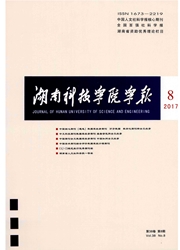

 中文摘要:
中文摘要:
在对晚期资本主义社会制度下的文学的反思中,詹姆逊提出了“民族寓言”的概念。作为第三世界文学一种流行较广的隐喻.可以从三个方面来解读这一范畴:詹姆逊的政治无意识理论在第三世界“民族寓言”中的反映,即文本的“民族性”与“寓言性”;詹姆逊对知识分子在“民族寓言”及世界文学中重要作用的强调;詹姆逊对歌德提出的世界文学观的重新诠释。结合这一概念的社会现实与历史语境,分析了詹姆逊的世界文学重构观念及其理论前瞻性与局限性。
 英文摘要:
英文摘要:
In rethinking the literature of the late period of capitalism, Jameson presents a concept of the "national allegory", which serves as a widespread metaphor of the Third-World literature. The authors give an interpretation of this concept in the following three aspects: the reflections of Jameson's theory of political unconsciousness in the Third-World "national allegory", namely " nationality" and "allegoricalness", Jameson's emphasis on the important roles played by the intellectual in the "national allegopy" and world literature, Jameson's reinterpretation of Goethe's view on world literature. Having made an interpretation of the con- cept of "national allegory" in the above aspects, the authors make an analysis of Jameson's theory of the reconstruction of world literature, and its theoretical foresightedness and limitations.
 同期刊论文项目
同期刊论文项目
 同项目期刊论文
同项目期刊论文
 期刊信息
期刊信息
